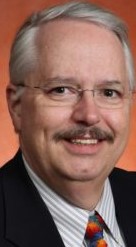
Doctor says get used to life with COVID-19

By St. Clair Murraine
Outlook Staff Writer
The protective shields in some stores are coming down. Mask wearing is becoming less popular and the push for hand washing is diminishing.
Social distancing is all but a gesture of the past.
All signs that society is getting a little weary of COVID-19 and might be poised to move past the coronavirus that had a chokehold on the world since early 2020. But not so fast, said Dr. Daniel Van Durme, senior associate dean for clinical and community affairs at FSU, where he is also chief medical officer for the School of Medicine.
COVID-19, which has been resurging in Leon County and other part of Florida in recent months, will continue well into the future, said Van Durme.
“I think that will be part of the new culture,” he said. “We will live in a future where it will be common to see people walking around in mask. I think that will be part of the new normal.”
According to a recent U.S. Department of Health and Human Services report, in-patients COVID-19 cases have increased nearly 20 percent during the span of a week. The number of cases involving in-patients for the week were at 2,694. That is an increase from 2,253 the previous week.
While the number of cases are much lower than they were a year ago, the current spread is being attributed to the highly contagious omicron variant of the coronavirus.
“I believe that COVID is here to stay,” Van Durme said. “The unknown is how bad will COVID be and how much will it impact life. But to be able to say I don’t think about COVID any more, I cannot envision that in the next several years and beyond.”
Although numbers are being reported weekly, there is some confusion about knowing exactly how many cases there are. In part, that is because of the availability of home testing kits for which the results aren’t being reported.
FAMU testing site recently reported seeing an increase in positive tests. About 20 percent of 300 tested daily are positive cases.
“We all wish COVID was behind us,” Van Durme said. “Unfortunately many people believe it is when it’s absolutely is not.”
Continuing to practice hand-washing and wearing mask are two precautions that Van Durme said could help to slow the spread. Refraining or limiting traveling in groups for hours at a time could also help, he said, adding that “the biggest issue is it spreads when we share air.”







